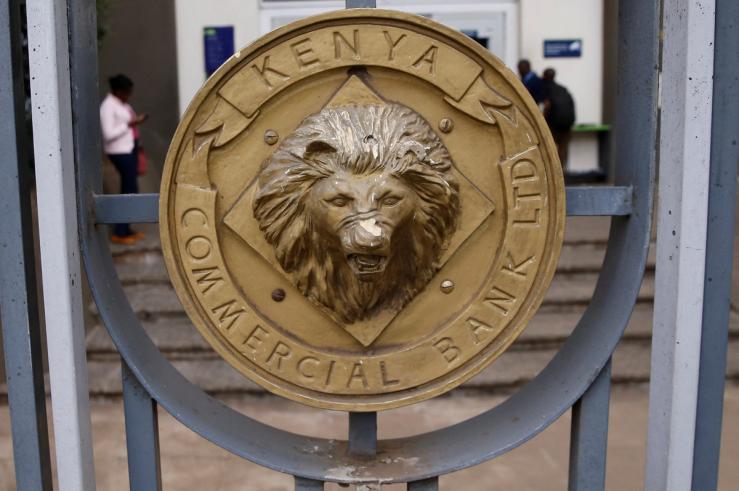The News
Kenya’s two largest banks are accelerating plans to launch in Ethiopia in their bid to capitalize on Addis Ababa’s economic liberalization, even as a new World Bank report highlighted major challenges faced by telecoms giant Safaricom in its expansion in the country.
Under Prime Minister Abiy Ahmed, Ethiopia has in recent years been liberalizing key sectors including finance and telecommunications. Parliament in 2024 approved the entry of foreign banks, and a June directive by the National Bank of Ethiopia allowed foreign commercial banks to apply for licenses in one of Africa’s most populous markets. The nation also launched its first stock exchange in January.
Kenyan banks are preparing to enter the market, betting on the growing demand for financial services among young people. In August, Kenya Commercial Bank confirmed plans to acquire a 40% stake in an undisclosed Ethiopian lender. And last month Equity Bank Kenya pushed forward on its plans to enter Ethiopia. Equity Group CEO James Mwangi met with the head of the Ethiopian Investment Commission and said the bank “wants to serve as an example for other foreign companies that wish to operate in Ethiopia.”
Their moves come as the World Bank last week highlighted the lack of a level playing field in Ethiopia in its market assessment report, looking specially at the case of Safaricom, which received Ethiopia’s first private telco license in 2021 after paying a $1 billion entry fee. The Kenyan telco giant began operations a year later and has since launched products including its M-Pesa mobile money service, a now ubiquitous payment platform in Kenya. The World Bank found that state-owned Ethio Telecom is afforded major advantages by the Ethiopian government at the expense of Safaricom, including regulatory decisions on pricing, saying that the operating conditions warranted “further investigation by authorities.”
Know More
Ken Gichinga, head of Nairobi-headquartered Mentoria Economics, told Semafor that the two Nairobi-headquartered banks were keen to secure early-mover advantages before other potential entrants from around the continent. South Africa’s Standard Bank and Nigeria’s First Bank have also expressed interest in the Ethiopian market.
Any foreign banks would be competing with the state-owned Commercial Bank of Ethiopia (CBE), the country’s largest bank, drawing parallels with Safaricom’s entry. The Ethiopian government is trying to adopt a “hybrid” model in its liberalization of the economy, said Gichinga. Ethiopia wants “win-win partnerships where they can tap into the efficiency and innovation of private foreign players but still make sure that at the end of the day the government has the final say,” he told Semafor.
In its report dated July, but published in September, the World Bank pointed to concerns over Ethio Telecom’s blocking of access to Safaricom apps, including M-Pesa, for its customers, and preferential arrangements for state-owned enterprises in handling government mobile money transactions. It also flagged Ethio Telecom’s pricing of voice calls below the cost of the mobile termination rate set by the regulator. “This means that Safaricom loses money on every single call made to EthioTel customers, as it needs to match EthioTel prices,” the report noted.
Safaricom Ethiopia is hemorrhaging cash despite strong customer growth: In 2024 the company lost $325 million while it crossed the 10 million subscribers mark in July this year and is adding an average of 31,000 new users daily. The World Bank said Safaricom’s financial performance “raises concerns on long-term investment sustainability and return on capital.”
Step Back
By entering the Ethiopian market, KCB and Equity would be further hedging their bets outside of Kenya. Equity has already seen success in its expansion to DR Congo. The bank expects the central African nation to overtake Kenya as its largest market by 2030.
Equity BCDC, the DR Congo subsidiary of Equity Group, posted a net profit of $71.4 million in the first half of 2025, a 22% increase over the same period in 2024. It now accounts for 26.3% of the group’s overall profits, with Kenya accounting for 56.4%.
Martin’s view
Moves such as Ethio Telecom’s blocking of Safaricom’s M-Pesa mobile money app do not bode well for Equity and KCB Bank whose growth plans are heavily centred on using technology to expand access to various financial products. It explains why meetings such as Mwangi’s with the Ethiopian Investment Commission have so far focused on the regulatory framework under which they would operate.
It is up to the Ethiopian state to reassure stakeholders by loosening the reins and codifying rules that protect all players, including foreign companies. Maintaining too tight of a grip on the economy despite the liberalization plan may slow down inflows of foreign direct investment, a major focus of Ethiopian Prime Minister Abiy Ahmed.
The View From Addis Ababa
Ethiopia is moving forward with plans to join the World Trade Organization by 2026, a step that is intended to raise confidence among international investors as it would commit the country to global trade practices and dispute resolution standards. A sixth round of negotiations took place in Geneva in September, with the Ethiopian Investment Commission describing it as “a vital step to boost FDI.”
The commission said that membership would provide Ethiopia with “transparent, stable trade rules, enhancing access to international markets” and offer “a reliable dispute resolution system for fair trade conflict settlement.”
Notable
- Kenya last week became the first destination for Ethiopian goods under the African Continental Free Trade Agreement’s Guided Trade Initiative, with a shipment including meat, coffee, edible oils, and textiles.


